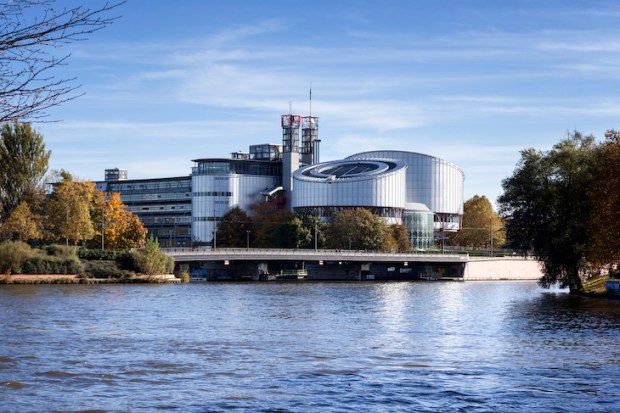If you think British politics is cracked, spare a thought for Europe. A spat between Germany and Poland is rapidly developing into a full-scale row involving not only those countries but the EU as a whole.
Just a couple of weeks ago, Polish foreign minister Zbigniew Rau of the ruling PiS (Law and Justice) party handed an explosive diplomatic note to his German equivalent, Annalena Baerbock, on a visit to Warsaw to discuss security. In it was a formal legal demand that Berlin pay a cool €1.3 trillion in reparations for damage done to the Polish state during world war two. Ms Baerbock instantly made it clear that in the view of the German government the issue of reparations for events 80 years ago was long closed and it did not owe a cent.
Since then matters have escalated. Polish President Andrzej Duda has pressed the matter with the German President. Meanwhile, the leading Polish hawk, Sejm deputy Arkadiusz Mularczyk, insists that Germany must pay up, and has called on the parliamentary assembly of the Council of Europe to debate the matter. More recently, a short film from German broadcaster DW doubting the legitimacy of the claim drew irate accusations of fact-bending from Poland, including from premier Mateusz Morawiecki. The matter has spread even to our shores: a few days ago Tory MP Daniel Kawczyński unequivocally weighed in on the Polish side.
There is, of course, more to this than meets the eye. In terms of strict legalities, Poland’s claim is less watertight than it looks. There is a respectable, though controversial, argument that it has become barred through delay (though intermittently referred to, reparations were first seriously advanced in 2015, 70 years after 1945). In addition, Poland not only agreed in 1953 to abandon any claim, a pact many international lawyers regard as valid despite Poland’s then subjugation to Russia, but also arguably stated in 2004 that it did not see the issue as being a live one. As if this was not enough, there is no immediately obvious court for Poland to sue Germany in to get its money: neither country has accepted the jurisdiction of the Hague International Court over world war two disputes. But the legalities probably don’t matter that much. This is pre-eminently politics, and high politics at that.
True, some of the Polish government’s truculence is indeed for home consumption, as some opposition leaders have rightly said. The vast proportion of PiS supporters, and probably a majority of voters as a whole, sympathise with the idea that Germany owes Poland: and this probably goes for a majority of Polish voters as a whole. With an election due next year, PiS needs a way to put the opposition on the spot and draw attention away from pressing home problems, including serious inflation (over 17 per cent at the last count).
However, there is more to it than that. Poland’s latest demand from Germany reflects the fact that, as with several other ex-Soviet satellites, its keenness has long been cooling towards older EU members, whose aggressive social liberalism, expansive views of the powers of the EU and hostility to perceived nationalism sit ill with its own conservative mindset.
Today German-Polish relations are not good, for several reasons. Poland is probably the most hawkish EU member state on Ukraine: its government regards Germany under Olaf Scholz as a rich but indolent backslider, more interested in a quiet life and in maintaining the comfort of people in Berlin and Bielefeld than helping Volodymyr Zelensky repel Putin. Further, PiS is, if not overtly Eurosceptic, at least very EU-wary, and knows perfectly well that Brussels fears and detests it. PiS increasingly sees Germany ganging up with Berlaymont in a push to persuade Polish electors to vote it out of office next year. Thirdly, there is the running sore of the EU’s long-running legal dispute with Poland over judicial appointments, seen by Warsaw as impertinent euro-interference in internal affairs and by Brussels as a repudiation of the rule of law, which justifies the withholding of EU payments. Which party is right is largely beside the point here. What matters is that Germany, the EU’s paymaster, is perceived by Poland as siding with the EU here and aiming to impose its values on Warsaw.
How will all this end? Probably in a messy compromise. True, Berlin could simply stonewall Warsaw. Indeed, it has one reason to do so: namely, that some other EU countries, such as Greece and reportedly Serbia, are already dusting off their own world war two claims on the back of Poland’s. But Germany probably won’t simply ignore Poland. Even if the country has a shaky legal case, it has a stronger moral and political one. The 1945 promise made by Stalin at Yalta to distribute compensation monies destined for his satellites predictably yielded little of value to Poland or indeed anyone but the USSR; some German voices are calling for a payment; and Germany has, tellingly, just paid Namibia something over €1 billion over previous atrocities in German South West Africa. And if the matter is debated at the Council of Europe, Germany could face some withering criticism.
In practice, one suspects that in much the same way defendants’ lawyers informally ask a claimant’s representatives how large a payment would induce it to go away, Germany will discreetly offer to buy off Poland’s claims for a few billion and a watertight waiver, coupled perhaps with an informal assurance of a less aggressive approach to Warsaw in its differences with Brussels. Poland has every reason to accept such an offer. Despite the rhetoric it clearly does not expect to get €1.3 trillion – a fantastic figure three times the German annual state budget – or anything like it. But if it can get an advantage against Brussels, in addition to some ready cash now, that may actually be worth more to it in the long run.
Got something to add? Join the discussion and comment below.
Get 10 issues for just $10
Subscribe to The Spectator Australia today for the next 10 magazine issues, plus full online access, for just $10.



















Comments
Don't miss out
Join the conversation with other Spectator Australia readers. Subscribe to leave a comment.
SUBSCRIBEAlready a subscriber? Log in